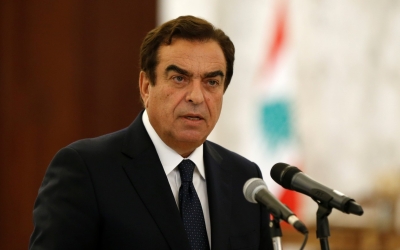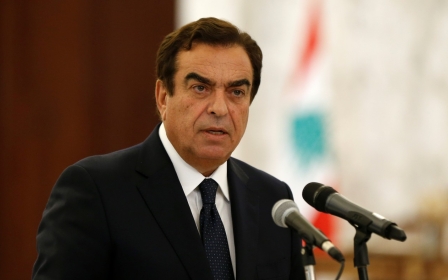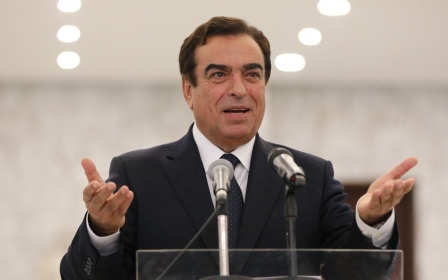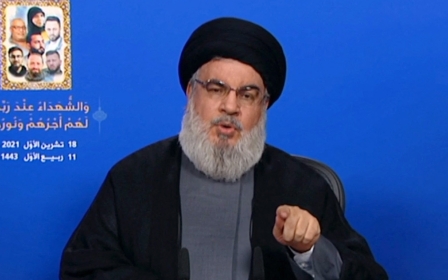Lebanon: Embattled minister says resignation 'out of the question' amid Gulf row
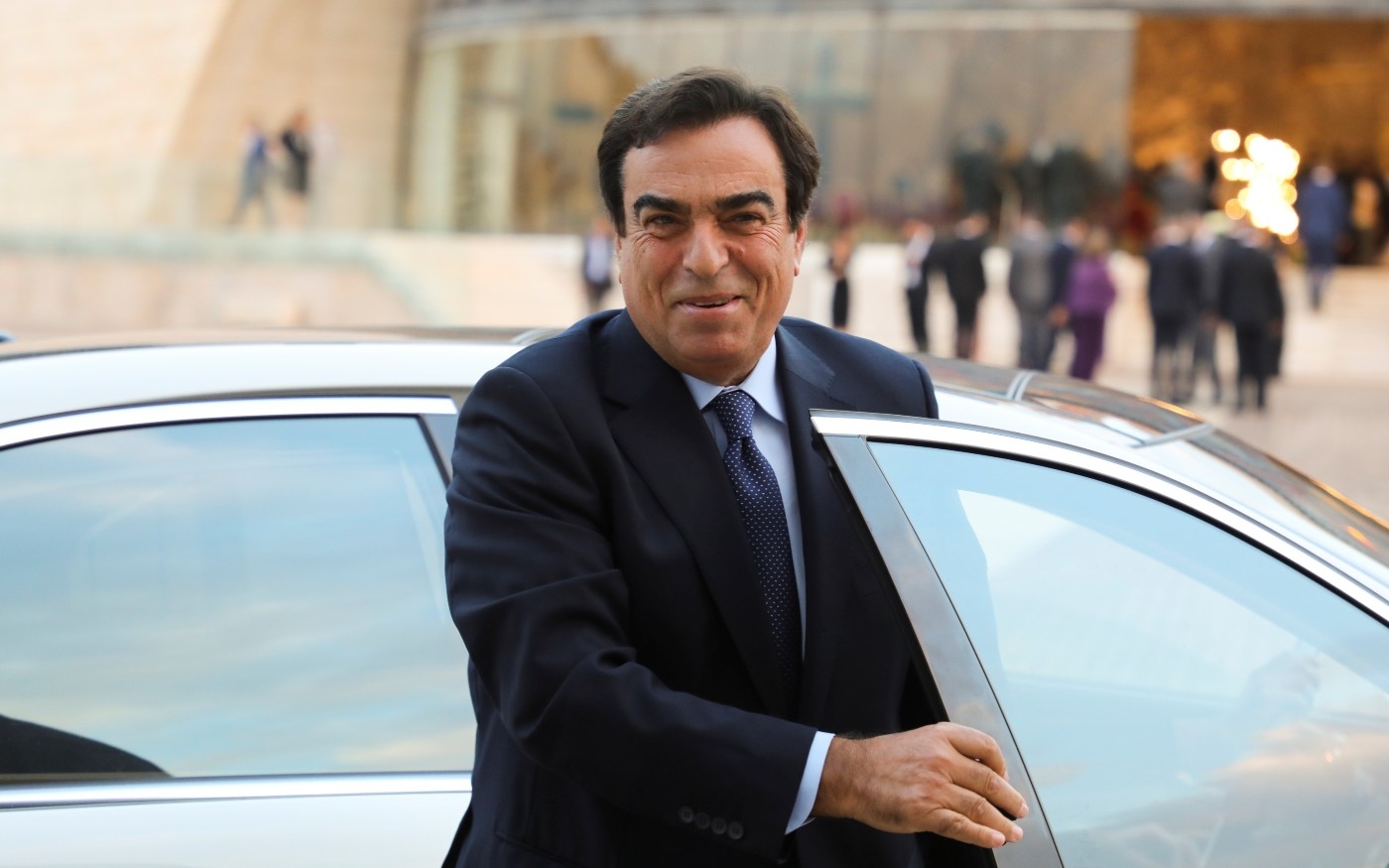
Lebanon's Information Minister George Kordahi said on Sunday that resigning from the government was "out of the question", Al Jadeed TV channel quoted him as saying amid a diplomatic crisis between Beirut and Gulf countries sparked by his comments critical of the Saudi-led military intervention in Yemen.
Saudi Arabia on Friday ordered the Lebanese ambassador to the kingdom to leave within 48 hours and recalled its ambassador to Lebanon for consultations in response to Kordahi's comments, which were broadcast on 25 October by Al Jazeera.
New MEE newsletter: Jerusalem Dispatch
Sign up to get the latest insights and analysis on Israel-Palestine, alongside Turkey Unpacked and other MEE newsletters
Bahrain, Kuwait and the United Arab Emirates followed in Riyadh's footsteps and also asked their Lebanese ambassadors to leave, as well as recalling their ambassadors to Beirut for consultations.
Saudi Arabia and Gulf allies including the UAE have led a military coalition fighting against the Iran-aligned Houthis since 2015.
In an interview recorded over a month before he was sworn in as minister of information, Kordahi said that Yemen's Houthi rebels were "defending themselves". He described the years-long war in the country as "futile".
Despite conciliatory statements from the Lebanese government, Saudi Arabia has called on the fragile coalition cabinet in Beirut to dismiss Kordahi.
In an interview with CNBC on Sunday, Saudi Foreign Minister Faisal bin Farhan al-Saud denied that the spat amounted to a diplomatic crisis, but said that Riyadh had decided that maintaining ties with Lebanon was neither "productive", "useful", nor in the Gulf's kingdom's interests.
"I think we have come to the conclusion that dealing with Lebanon and its current government is not productive and not helpful with Hezbollah's continuing dominance of the political scene, and with what we perceive as a continuing reluctance by this government and Lebanese political leaders in general to enact the necessary reforms, the necessary actions to push Lebanon in the direction of real change," bin Farhan told the US news channel.
"We have decided that I think engagement at this point is not productive or useful. And it's not really in our interest."
While Kordahi, the former host of the Arabic version of the show Who Wants to be a Millionaire?, does not officially belong to a political party, his nomination as minister of information was backed by the Marada party, which is allied with the Iran-backed Hezbollah movement.
Lebanon's politics have long been influenced by competing regional and international powers sponsoring different parties, which have swayed successive governments, including through diplomatic pressures and threats of withholding financial support.
In May, then-foreign minister Charbel Wehbe resigned after comments he made during a television debate suggesting, among other things, that Gulf states had supported the rise of the Islamic State group, which strained ties with Gulf allies and donors.
A high-ranking official within the presidential palace, who spoke on condition of anonymity, told Middle East Eye on Saturday that the ongoing diplomatic crisis "would have been avoided if diplomatic relations with Saudi Arabia were based on mutual institutional respect".
Middle East Eye delivers independent and unrivalled coverage and analysis of the Middle East, North Africa and beyond. To learn more about republishing this content and the associated fees, please fill out this form. More about MEE can be found here.


